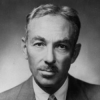E. B. White

E. B. White
Elwyn Brooks "E. B." White was an American writer. He was a contributor to The New Yorker magazine and a co-author of the English language style guide The Elements of Style, which is commonly known as "Strunk & White". He also wrote books for children, including Stuart Little, Charlotte's Web, and The Trumpet of the Swan. Charlotte's Web was voted the top children's novel in a 2012 survey of School Library Journal readers, an accomplishment repeated in earlier surveys...
NationalityAmerican
ProfessionWriter
Date of Birth11 July 1899
CountryUnited States of America
As long as there is one upright man, as long as there is one compassionate woman, the contagion may spread and the scene is not desolate. Hope is the thing that is left us in a bad time.
A man who publishes his letters becomes a nudist - nothing shields him from the world's gaze except his bare skin. A writer, writing away, can always fix things up to make himself more presentable, but a man who has written a letter is stuck with it for all time.
It was the best place to be, thought Wilbur, this warm delicious cellar, with the garrulous geese, the changing seasons, the heat of the sun, the passage of swallows, the nearness of rats, the sameness of sheep, the love of spiders, the smell of manure, and the glory of everything.
Commuter - one who spends his life In riding to and from his wife; A man who shaves and takes a train And then rides back to shave again.
An unhatched egg is to me the greatest challenge in life.
Geese are friends to no one, they bad mouth everybody and everything. But they are companionable once you get used to their ingratitude and false accusations.
Wilbur burst into tears. "I dont want to die," he moaned. "I want to stay alive, right here in my comfortable manure pile with all my friends. I want to breathe the beautiful air and lie in the beautiful sun."
We grow tyrannical fighting tyranny. . . . The most alarming spectacle today is not the spectacle of the atomic bomb in an unfederated world, it is the spectacle of the Americans beginning to accept the device of loyalty oaths and witch hunts, beginning to call anybody they don't like a Communist.
A poet's pleasure is to withhold a little of his meaning, to intensify by mystification. He unzips the veil from beauty, but does not remove it.
A library is many things, but particularly it is a place where books live, and where you can get in touch with other people, and other thoughts, through books... Books hold most of the secrets of the world, most of the thoughts that men and women have had.
The time not to become a father is eighteen years before a war.
All we need is a meteorologist who has once been soaked to the skin without ill effect. No one can write knowingly of the weather who walks bent over on wet days.
In every queen there's a touch of floozy.
In a free country it is the duty of writers to pay no attention to duty. Only under a dictatorship is literature expected to exhibit an harmonious design or an inspirational tone.